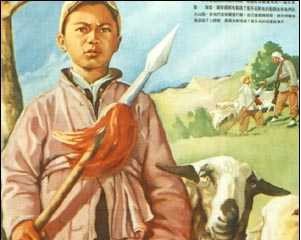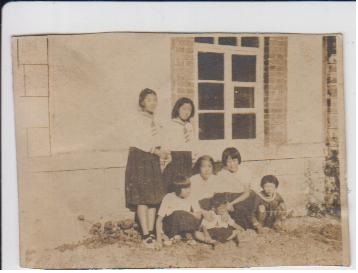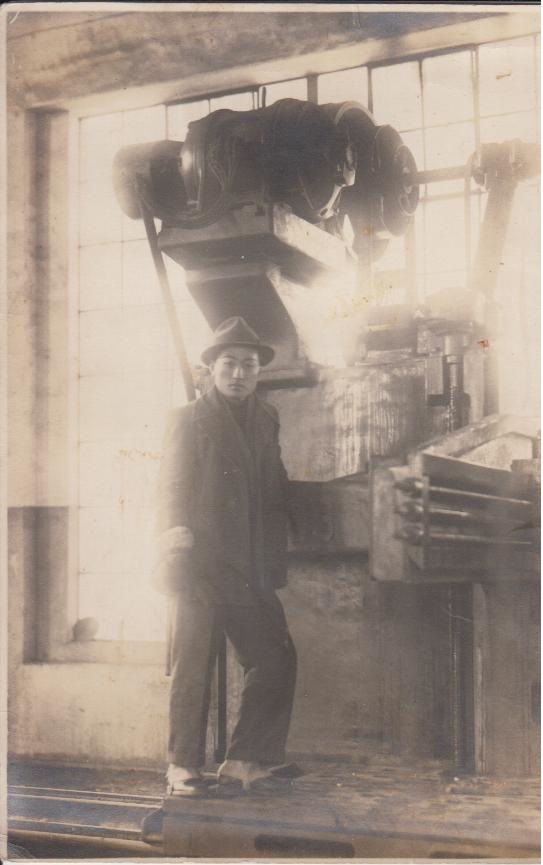Children of War
- By Peter Harmsen
- 25 September, 2013
- 13 Comments
 Millions of people have recollections from the Second Sino-Japanese War, but most have never told their story – meaning valuable insights about one of history’s greatest conflicts risk being lost forever. Aiming to salvage as many stories as possible from oblivion, www.shanghai1937.com is inviting readers to send in recollections, whether they are their own or they have heard them from people they know well.
Millions of people have recollections from the Second Sino-Japanese War, but most have never told their story – meaning valuable insights about one of history’s greatest conflicts risk being lost forever. Aiming to salvage as many stories as possible from oblivion, www.shanghai1937.com is inviting readers to send in recollections, whether they are their own or they have heard them from people they know well.
Liu Xingdong’s sister with classmates during Japanese occupation
“They were constantly fleeing to an air raid shelter built out of a cave. The conditions in the shelter were very bad. However, the rich had their own section of the shelter that had electric light, good food, and even places for dancing,” according to Charles Leng.
“The food given to her family was very bad and consisted of rice and some vegetables that they managed to scavenge from garbage dumps. Altogether, five people out of the 18 in the original party that fled to Chongqing died in Chongqing. After the war, her family returned to their home in Nanjing to find it looted and burned by the Japanese.”Charles Leng’s grandfather Liu Xingdong was born in 1935 and lived on his family’s farm near the northeast Chinese city of Dalian. It was in Manchuria, the northeastern provinces of China that had been under Japanese control since the early 1930s, and he experienced the Japanese oppression first-hand.
“When my grandfather went to school, Japanese was taught as the first language and Chinese was taught as the language of Manchukuo, the Japanese puppet state. The students were also made to face Japan every day and bow to the Japanese Emperor. They also made the students conduct military training with wooden sticks. There were very few opportunities for education, and it was considered lucky to get a primary school education,”Charles Leng writes.
Many farmers couldn’t grow enough to eat as it was, and they were nevertheless subjected to rising taxes as the Japanese war economy came under growing strain. The Japanese even restricted the population’s access to rice, and people were made to eat dry substitute flour with poor nutrition value instead.

Liu Xingdong’s brother-in-law in factory
“After the Pacific War started to drain on Japanese resources, Japan was increasingly dependent on Manchuria for resources of all kinds. So the Japanese took people for slave labor. The local Chinese were seized up and made to work in Manchurian mines and on Japanese ships. Still, the Chinese locals were considered third class citizens, with Koreans brought in by the Japanese considered second class, and Japanese first class.”
When Charles Leng goes to China on summer vacation, he can sense that memories of the war are still very much alive.
“I can feel that the Chinese people have not forgotten the war crimes and brutality by the Japanese and still have strong feelings against the Japanese. I am glad that my grandparents told me about their experiences, so I can find out about this war from an eyewitness.”

 Copyright © 2025
Copyright © 2025
Leave a Reply